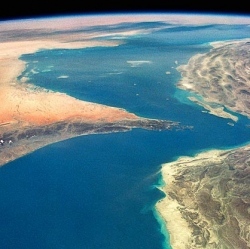
The U.S. Air Force will save 40 percent by buying a GPS satellite launch from SpaceX compared with what United Launch Alliance has been charging. The Air Force awarded SpaceX an $83 million contract to launch the satellite, breaking the monopoly that ULA partners had held on military space launches for more than a decade.
The disclosure of the cost gap between SpaceX and ULA highlights the challenge the latter will face in competing for future launch business.
"We believe … the awarded price for this mission is about 40 percent cheaper than (the) government estimate for previous missions,” Lieutenant General Samuel Greaves, head of the Air Force’s Space and Missile Systems Center, told reporters.
ULA is responding to competition from SpaceX and other startups by slashing costs and overhauling its lineup of rockets. The venture is upgrading its workhorse Atlas 5 rocket, cutting launch prices to less than $100 million per flight, and dropping its costly Delta 4 rocket line, ULA executives have said.
The Colorado-based firm plans to eliminate 875 jobs, or about one-quarter of its workforce, by end-2017, so it can better compete against SpaceX and other rivals, including the Jeff Bezos-backed Blue Origin, ULA Chief Executive Tory Bruno told Reuters recently.
SpaceX and ULA are the only two companies certified to fly high-value national security and military payloads. Greaves said the Air Force received a second bid for the GPS 3 launch contract awarded to SpaceX, but would not elaborate.
ULA did not bid for the GPS 3 launch contract, but said on Thursday it intended to compete for future military launches.
"ULA is eager to respond to future national security launch opportunities," company spokeswoman Jessica Rye said in a statement.
"SpaceX is honored to have been awarded the first competitively sourced national security mission in over a decade," SpaceX President and Chief Operating Officer Gwynne Shotwell said.
Greaves said the Air Force is reviewing the GPS launch service solicitation and assessing feedback from industry before releasing its next request for launch service proposals in May or June.
The Air Force had relied solely on United Launch Alliance to launch satellites for the past decade, but decided to open up competition for a series of nine satellite launches to be awarded by 2018.
